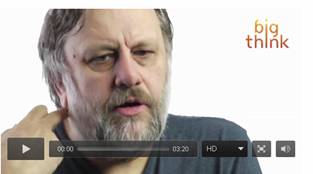John Locke proposed a more detailed and systematic theory of toleration, which included a principle of Separation of Church and State that formed the basis for future constitutional democracies.
The philosophers and writers of the Enlightenment, especially Voltaire and Lessing, promoted and further developed the notion of religious tolerance, which however was not sufficient.
|
Very topical on tolerance are Jurgen Habermas’ statements during his lecture in March last at Nexus Institute: The Post secular Society - What does it mean? Habermas explained the strained relations between creed, church, the state, individual citizens, politics and society: “Tolerance is often seen as synonym for respect. But that is a misunderstanding. In European history tolerance mostly went attendend by a lack of respect – minorities were hold in contempt, but were tolerated. Separation of Church and State is not the solution for all problems anymore. Secular range of thougt is dominant in our society and the faithful don’t feel well, often even discriminated. In daily life citizens have to exert oneselves to understand each others arguments. For that purpose they should learn something of each others vocabulary. After that they can mention points of differences, make concessions and overcome disputes. Only understanding is needed to do business”. |
|
|
|
Of great help to understand the idea of tolerance and each others arguments is dialogue and schooling. After all, lessons are the means to give food for reflection |
|
TheEU declaired 2008 “European Year of Intercultural Dialogue”. A partnership between a faculty, some universities and an institute organised the Management International Conference “Intercultural Dialogue and Management” in Barcelona November 2008. In daily life citizens have to exert oneselves to understand each others arguments. |
|
4 June 2009 Obama speeched in Cairo on a 'New Beginning' between Americans and Muslims: “They overlap, and share common principles – principles of justice and progress; tolerance and the dignity of all human beings.” and mentioned affairs, on which everyone on this earth has a right: “The ability to speak your mind and have a say in how you are governed; confidence in the rule of law and the equal administration of justice.” |
“Where to begin?” wrote philosopher Hassan Hanafin in 2005. In January this year the European Union and Grand Mufti mr. Hassoun answered that question.
Motto now is “Maintaining the Dialogue”. Furthermore, the Alliance of Civilizations, the Coalition of the Global Commons and myriad other institutions are active in this direction. |
| Believe in tolerance could also be seen as a part of solution of the situation on the Western Balkans (Kosovo, Serbia, Bosnia, FYR Macedonia). How the European perspective could be strengthened, how about Kosovo, a new state within Europa, how will situations further develop and how to manage to let perspective succeed. History and believes are very important elements. In Kosovo furious young people and drugs-maffia is of significance. In Serbia is a fast ageing of population present. Russia and Serbia has strong ties for centuries and a voluminous part of the citizens sympathize with Russia, another voluminous part will join the EU. America is also giving pressure.
Nevertheless, a wide commited policy of encompassing and by comprehensive politics increase also chances to succeed in satisfied solutions: "Civil Society Development in Southeast Europe: Building Europe Together" (EU). |
|

